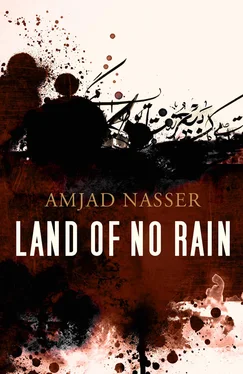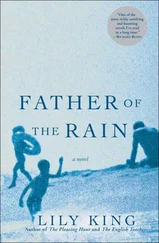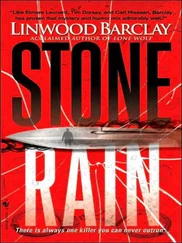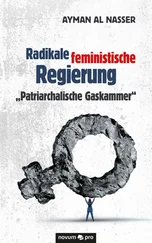* * *
Young Younis didn’t budge from the room. He just said, ‘They’re waiting for you in the diwan.’ He remained standing a few feet away from you. You remembered your first meeting with Roula, the words ‘I love you’ and how, as her dimples prepared to make a storm, she said, ‘Are you mad?’ The smell of the cinchona trees, the kisses, the letters that came close to the Song of Solomon, the perfumed lock of hair, morning coffees in the central market, the suns that rose and the suns that set, the storms, the biting cold, Khalaf’s face and his eyes avoiding you. A videotape with a thousand and one images, replayed at speed as you looked inanely in the mirror.
Suddenly, something happened that you hadn’t expected.
You felt that all your sensations — the rise and fall of your breathing, your heartbeat, fast or slow, all the images that passed one by one through your head — were happening to someone else you could see in the mirror. You could feel exactly what he felt, and see the images, fast and slow, that went through his mind, but he wasn’t you. It was as if the two of you had been one person and then you had quietly split in two, like space ships undocking on a television screen. But you were strongly aware of him nonetheless. You even felt that his mouth was dry and he was trying to moisten it by producing a little saliva. There were three of you in the room: you, the other person in the mirror and young Younis, whose round eyes were darting between you and the mirror. You thought it had happened under the influence of the tranquilliser you had just taken. But no. Because when you put your hand on the shoulder of young Younis and said, ‘Let’s go’, the hand of the man looking out at you from the mirror did not move. He kept staring at you with looks that ranged between pity and expectation.
With her hair tied back and her black dress raised to her knees, Roula was sitting on a chair under the calligraphy that read Souls yearn for you for eternity. You told yourself it might have been a coincidence, though to you she retained some of that aura of princess she had in distant days. She too liked that poem, which you had read to her. Your brother Shihab and his wife Fadwa were talking to her. You heard her voice before you went into the diwan, saying that she had been going to the park for a walk. It was the same slightly husky voice. The huskiness that used to make your head spin. Then you heard Fadwa say that you had been shutting yourself up in the room all the time. Then you went into the diwan. She stood up and greeted you. She looked shorter than you remembered her. ‘Welcome back,’ she said. ‘Thank you,’ you replied. ‘It’s been a long absence,’ she said. ‘Indeed!’ you said. Then she asked, ‘Just visiting or back for good?’ ‘I’m not sure yet,’ you said. Her dimples were in action, both when she was speaking and when she was listening. You felt that they were about to take off with full force but they didn’t. Some kind of intentional self-control held them back. The two of you didn’t know where to begin. All the things you said at the start were laborious attempts to discover the path the conversation should take. You didn’t come across that path. The conversation remained desultory. It went back and forth but didn’t lock on to a particular track. It was the talk of strangers, or of people who last met a long time ago. So commonplace talk was safer. She asked you if you found the country changed. ‘Sure,’ you said. ‘Everything’s changed,’ she said, ‘even the weather.’ Then she fell silent. You found yourself telling her, ‘That’s the case everywhere. Places change and people too.’ You chatted a little about how change was the way of the world, and then you shut up. She said you had become famous, and you said, ‘Not very. It’s actors and singers who can be described as famous, not writers. At least, not writers like me.’ She said, ‘But we’ve seen your picture in the papers several times.’ ‘Maybe,’ you said, ‘whenever one of my books comes out.’ You didn’t notice you were now alone, in front of glasses of lemonade with rosewater, until she said she had lost all those she had loved and that she had only her children left. Apparently you had made a reference to the black dress she was wearing. You thought of that ancient line of poetry: ‘Those I love are gone and I am left solitary, like a sword.’ But you didn’t say it. Your mind, quite separately from you, summoned up the words of the poem, which didn’t normally come to mind, and the line tripped across your silent tongue word by word. The line took hold of you and you couldn’t drive it out of your head. That saddened you, or upset you, you don’t know, and you told her, ‘At least you have your children.’ When you uttered this stupid comment you broke free of the line of poetry and relaxed. But she ignored the comment and said, ‘It’s not true what you wrote in your book Hamiya and the Bridge .’ You asked her what she meant exactly. She spoke about how the woman you had loved in your country asked you for a divorce shortly after you escaped abroad. She was referring to one of the chapters in your previous book, which was a mixture of autobiography and fiction. You told her the book was not a documentary work, not a real autobiography, because it had imaginary elements, perhaps more than it drew from reality. She said something to the effect that even if the book was entirely fictional, that didn’t change the fact that the woman you were talking about had not sought a divorce soon or in the way you described.
You remembered your contract of marriage to Roula, which you had found among your papers. It was dated about six months before your sudden flight. The conversation between you finally seemed to be on the right track. You felt comfortable and you felt no urge to cough.
You don’t know how long you went on talking. Then the lights came on. Roula pulled down the hem of her dress, which had ridden up above her knees, exposing two round, well-formed, wheaten thighs that you knew well. ‘My deepest condolences!’ you heard her say, referring to your wife.
You had to face the person you had long avoided, the one you left behind twenty years ago. Or, more precisely, the one who hadn’t crossed the border with you to the City Overlooking the Sea, and had not lived the life you had lived since that moment. The one you hadn’t dragged with you from country to country, along with a small suitcase and a few books, the one who had not known the cold that had chilled you to the bone, who had not seen wars and sieges and how people can eat rats and cats, who had not seen the victims of the plague staggering in the streets and falling on the pavements like autumn leaves. You knew that confrontation was inevitable with this person, who would turn up at the worst of times, fold his arms across his chest, and scrutinise you like an obstinate examiner. He’s not a ghost. But also he’s not flesh and blood. You find it hard to define his status. He exists and that’s it. He’s here, exactly as you left him.
That night you sat alone, as usual, on the balcony after the rest of the family had gone to bed one by one. The coughing and the insomnia, which had disappeared on your first nights, now recurred. Your remaining family did not stay up late on the balcony as they did in the old days. The nights of the past now came back to you, with their smells, the carefree laughter, the stories told in three or four versions. Your grandfather’s version. Your grandmother’s version. Your father’s version. Your mother’s version. It was usually the last version that decided between the other versions, because your mother had an extraordinary memory and could reconstruct faces, events and words with an accuracy unrivalled by anyone else in the family or in the neighbourhood. You felt there was someone hovering around you. There was someone waiting for this opportunity. Maybe you were waiting too.
Читать дальше












